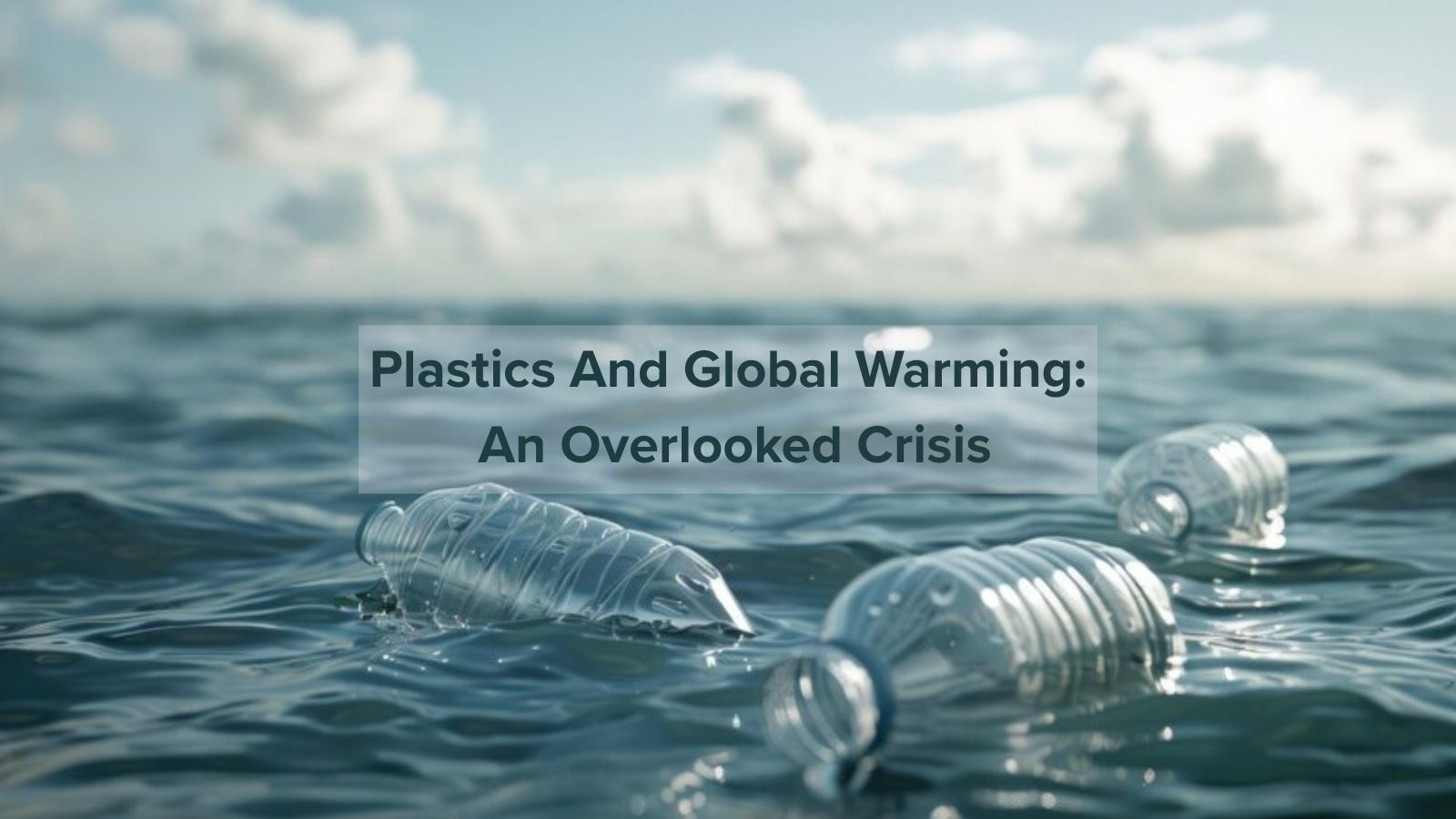Plastics, while primarily notorious for their environmental impact on oceans, are also silent contributors to global warming.
The production, use, and disposal of plastics release significant amounts of greenhouse gases (GHGs), compounding the climate crisis.
At the heart of this issue is that plastics are made from fossil fuels. The extraction and processing of oil, gas, and coal to produce plastic generates carbon dioxide (CO2)—one of the main contributors to global warming.
In fact, plastic production emits as much CO2 as 45 million cars annually.
Additionally, when plastics are disposed of through incineration, CO2 is released, exacerbating climate change. Despite being a more eco-friendly alternative, Recycling is only effective in a limited percentage, with most plastic either ending up in landfills or becoming waste that doesn’t get processed properly.
Additionally, plastics themselves contribute to climate change upon degradation. Microplastics, tiny plastic particles, strongly interfere with marine life’s ability to absorb CO2 from the atmosphere, further harming our planet’s ability to tackle global warming. The relationship between plastics and climate change is indisputable, yet often overlooked.
Even plastics that make it into landfills can produce methane, a potent greenhouse gas that is 25 times more effective at trapping heat than CO2.
While it offers a much-needed glimmer of hope, recycling rates today are dismally low.
Less than 10% of plastic waste is recycled globally, and as it breaks down, it further fragments into smaller microplastics that invade our ecosystems including oceans, rivers, and soils.
As the world gears up to mitigate the impacts of global warming, it’s clear that plastics are an essential part of this equation. But how can businesses and industries approach this dual crisis?
Companies like Unitec Fibres, leaders in the recycling of PET fibres, play a pivotal role in fighting both plastic waste generation and climate change. By advancing the use of recycled materials, especially through innovations in PET recycling, these companies are helping minimize the need for new fossil fuels to create plastic products.
Additionally, backing circular economy models – where materials are reused and recycled continuously, can significantly lessen the environmental impact of plastics.
As we head toward a more sustainable tomorrow, addressing the inevitable intersection of plastics and climate change is essential. With concerted efforts from businesses, policymakers, and individuals, we can reduce the harmful effects of plastics and take a meaningful step in combating global warming.
The time to act is now.

